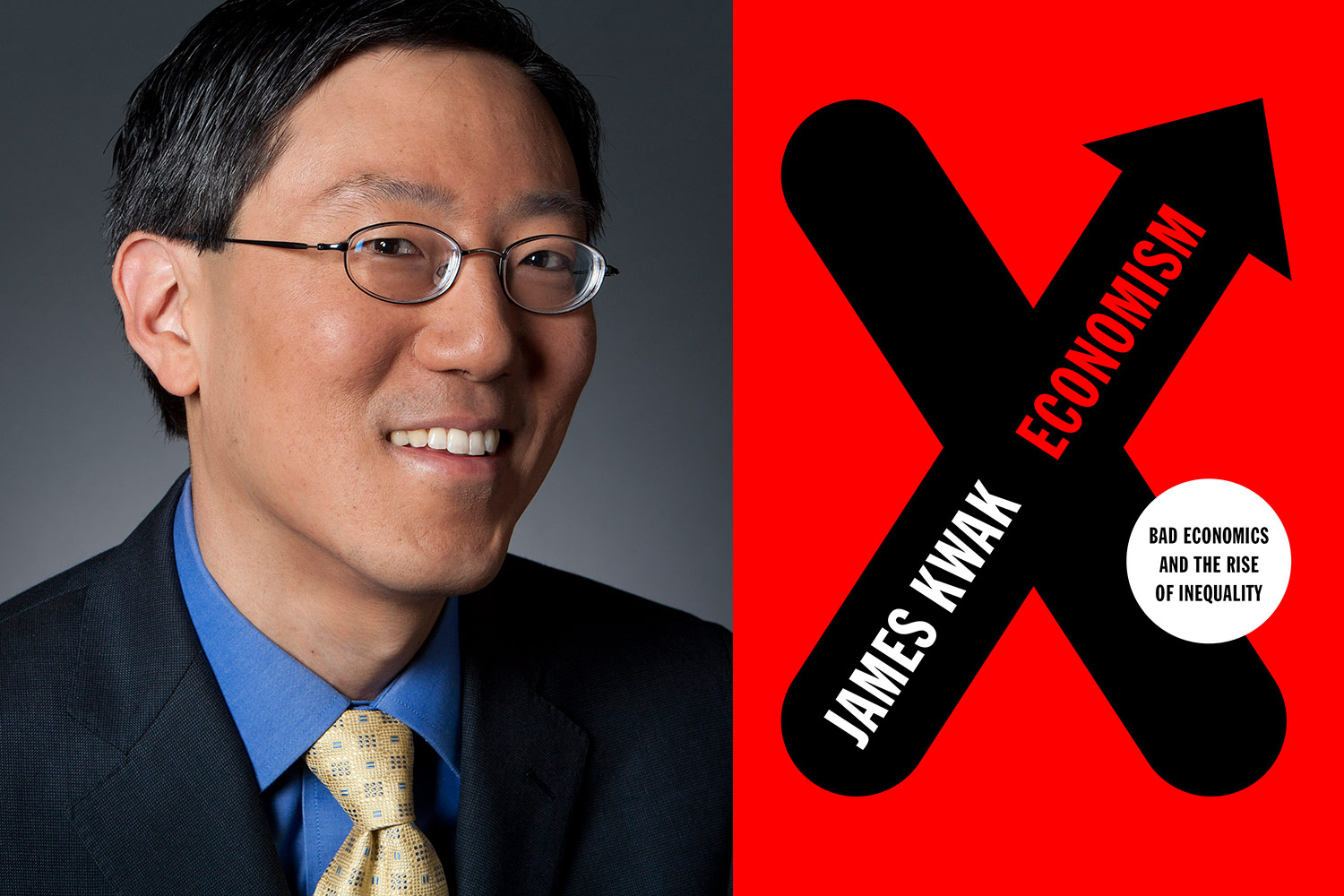The simplistic idea that free markets always generate the greatest possible economic well-being is helping drive economic inequality, writes UConn Law Professor James Kwak in a new book, Economism: Bad Economics and the Rise of Inequality.
In the book, released this month by Pantheon Books, Kwak defines economism as the “invocation of basic economics lessons to explain all social phenomena.” For example, a superficial understanding of supply and demand from an Economics 101 course supports the belief that raising the minimum wage increases the unemployment rate. But the facts don’t support the theory.
“Looking at historical experience, there is no obvious relationship between the minimum wage and unemployment,” Kwak writes. “The supply-and-demand diagram is a good conceptual starting point for thinking about the minimum wage. But on its own, it has limited predictive value in the much more complex real world.”
The book also explores the detrimental influence of oversimplified economics on policy regarding taxes, health care, labor law, trade, finance and other matters. The overall effect, according to Kwak, has been to impede progress and support the status quo.
Lawrence Lessig, the Roy L. Furman Professor of Law and Leadership at Harvard Law School, wrote that Economism “shows us how a simplistic idea about economics has captured policy-making to the detriment of sensible policy. No book better frames this pathology or better supplies the resources for resisting it.”
Kwak is the author, with MIT Professor Simon Johnson, of two previous books, 13 Bankers: The Wall Street Takeover and the Next Financial Meltdown and White House Burning: The Founding Fathers, Our National Debt, and Why It Matters To You. He is also an online columnist for The Atlantic, and the co-author of The Baseline Scenario, a leading blog on economics and public policy.
He has a Ph.D. in intellectual history from the University of California, Berkeley, and a JD from the Yale Law School. Before entering law school, he worked as a management consultant and a software entrepreneur. He joined the faculty of UConn School of Law in 2011.



